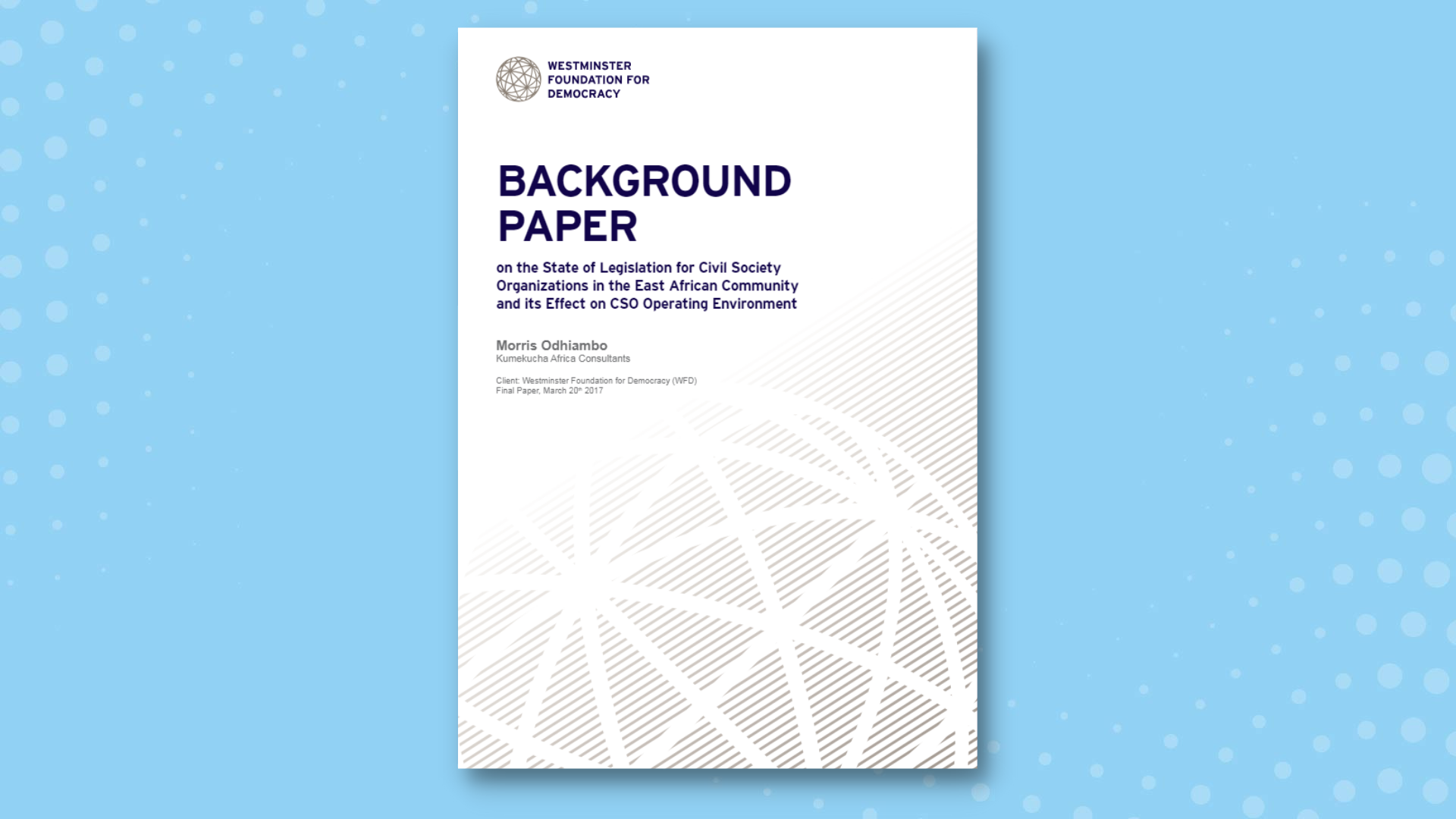
Morris Odhiambo
The critical question of operating environment for Civil Society Organizations (CSOs) has been an issue of concern globally as well as in the East African Community (EAC) region. In its 2013 State of Civil Society Report, the World Alliance for Citizen
Participation (CIVICUS) concludes that the conditions in which civil society operate globally, “are shaky at best and deteriorating in many parts of the world”. The reasons for this conclusion are, in summary, “a litany of threats to civil society, from outright violence against civil leaders to legal restrictions on Civil Society Organizations to dramatic funding cuts”.i In EAC, both the 3rd and 4th Annual EAC Secretary General’s Fora discussed the operating environment for CSOs in the region and came up with various resolutions.
The meaning of civil society has historically been an issue of contestation mainly between the Liberal and (neo)Marxist world views. The debate is also largely framed in terms of the relationship between states (as such) and civil society. While the liberal view stresses the distinction between states and civil society, the Marxist view sees the state as being inexorably embedded in
society’s socio-economic relations. Liberals further see the state as a neutral arbiter in the affairs of society while Marxists see it as a tool for exploitation in the hands of ruling elites.iv This paper adopts the definition of civil society in the East African Community Treaty (EACT), as, “the realm of organized social life that is voluntary, self-generating, self-supporting, autonomous
from the state and bound by a legal order or set of shared values”.
Generally, studies into CSO operational environment are motivated by the need to anchor evidencebased advocacy interventions to improve the working environment for CSOs. They take note of changes in the key features of the operating space such as legislation and socio-political trends that affect the operations of CSOs. Such trends can either be towards further opening or closing of the space. However, there has been widespread concern globally about shrinking civic space as a result of actions of governments.
Broadly, the study is guided by the democratic theory and its key tenet of citizen/public participation. In theories of public participation in governance, Quick and Brysonxi assert the importance of citizen participation directly or indirectly in governance. Indirect participation involves electing leaders to represent the interests of citizens in decision-making while direct participation
involves taking actions directly as citizens. According to Roberts, public participation is a fundamental part of the public government relationship in democratic governance. Civic space is a key enabler of direct democracy. It facilitates the growth of CSOs that act to bridge the gap between those who lead and those who are led.
